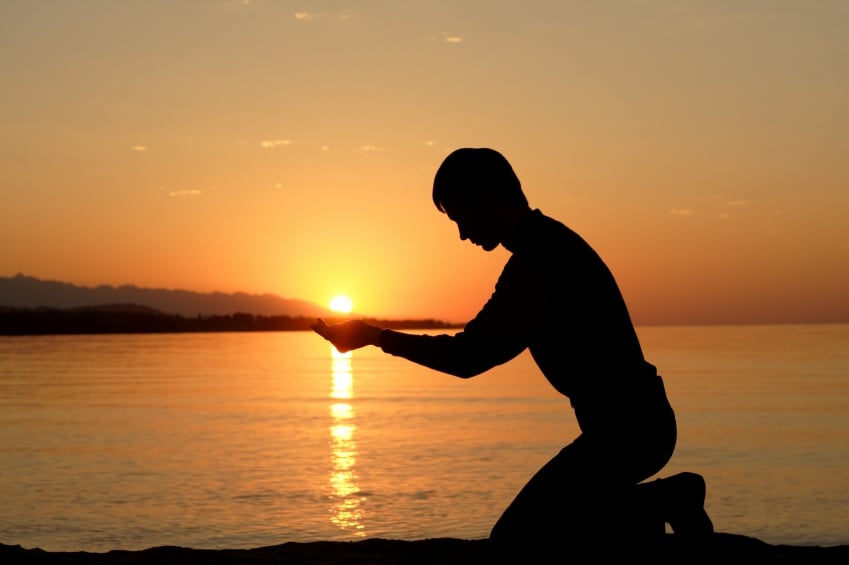In contrast, the Stoic philosopher Cicero said: "Gratitude is not only the greatest of virtues but the parent of all other virtues." Of course, religions have always stressed the importance of gratitude. Buddha in the East said: "The distinguished person is grateful," while the Bible says: "Give thanks in all circumstances, for this is the will of God in Christ Jesus for you."
Indeed, its importance is so much appreciated that cultures worldwide have festivities that focus on gratitude, such as the Moon Festival in China, the Erntedankfest in Germany, the American Thanksgiving, and many others.
As we gather with family and friends in these festive seasons and pause to practice the adage of gratitude for our blessings, perhaps we should ask ourselves: “How often do we feel grateful without a holiday that reminds us of it?” We may find that our answer is “ not often,” but the good news is that we can strengthen our capacity for gratitude with some self-awareness and conscious effort.
Benefits of Practicing Gratitude
1. Better Relationships
Relationships are essential, and since they profoundly impact our lives, taking care of our social relationships is very important. And showing gratitude is a great place to start. Robert Emmons, professor of psychology at the University of California, Davis, founding editor of The Journal of Positive Psychology, and the world's leading scientific expert on gratitude, says: “Gratitude has a significant positive effect on relationships.” On his website, he wrote: “People who have a high ability to show gratitude can empathize and understand others’ perspectives. Their acquaintances rated them as more generous and cooperative.”
Grateful people place less importance on material things, tend not to judge the success of others based on what they have, and are less envious of others and more social. Feeling grateful can also affect the chances of giving back. It means that the more grateful we feel, the more likely we are to practice helpful behaviors and continue behaviors that lead to helping others.”
A study in Psychology showed that gratitude encourages these helpful behaviors and can increase the proportion of help provided to strangers. Gratitude can also have a positive impact in the workplace. According to "Emmons," “Gratitude is the absolute substance to improve performance; it drives people to be more cooperative and kind and show sympathy and encourage others, and even volunteer in additional work tasks.”
Gratitude can reduce the problem of overvaluing rights. People feel that others owe them something, and overvaluing rights not only harms relationships with others but also harms oneself. It can manifest itself in aggression, violence, theft, poor work performance, envy, greed, resentment, irresponsibility, and blaming others. Emmons says, “A person who feels entitled to everything will never be grateful for anything. Gratitude is the antidote to entitlement.”
2. Better Sleep
Sleep affects our work performance and how we spend our entire day. We feel confused, unfocused, lazy, and irritable without a good night's sleep. Lack of sleep is also linked to an increased risk of obesity, heart disease, and diabetes, as it causes great harm to our health.
Many studies have found that gratitude helps improve sleep. For example, a study in the Journal of Behavioral Sleep Medicine found that practicing gratitude can help us sleep longer and healthier, perhaps as a remedy for bedtime worries, anxiety, or depression.
So, the next time you have trouble sleeping, why not read a magazine about gratitude instead of taking medications? Or try the sleep technique by feeling grateful, lying on the bed, closing your eyes, focussing on something you are thankful for, remembering all the reasons, and then relaxing because good feelings overwhelm you. You can also do breathing exercises, feel grateful, and expel unwanted feelings, tension, and negativity.
3. Improve Physical Health
While we're constantly discovering how our brains affect physical health, you might be surprised to learn that something as small as practicing gratitude can be constructive. Studies have shown that gratitude can help improve fibromyalgia, memory, blood pressure, and heart rate change. It also leads to lower levels of endothelial dysfunction. It even improves cardiovascular performance.
According to the UC Davis Medical Center, gratitude lowers bad cholesterol (LDL) while raising good cholesterol (HDL). It can also reduce cortisol levels and improve immune function. While research in this area is still limited, studies are promising, and with all the potential health benefits of a small act like practicing gratitude, you should try it.

4. Better Mental Health
The most critical effect of gratitude comes from improved feelings of mental health. Emmons' numerous studies have revealed this fact. He wrote, “Grateful people report higher levels of positive emotions, life satisfaction, vitality, optimism, and lower levels of depression and stress.”
Sonja Lyubomirsky, a psychology professor at the University of California, Riverside and author of The How of Happiness and The Myths of Happiness, studied the positive effect of gratitude on happiness.
She says that gratitude not only helps us feel good but it also helps us not to underestimate things. Gratitude also makes us more helpful to others, and when all these things come together, it increases our sense of happiness.
Lyubomirsky says gratitude also reduces negative emotions and experiences. In a presentation by the Greater Good Science Center, She says: “Gratitude is almost impossible to feel at the same time as you feel greedy, envious, bitter, or anxious.” Research presented at the American Psychological Association's 2012 annual conference confirms that gratitude not only makes us happier but can also lead us to make positive life choices.
The study found that “Teenagers who are grateful are more likely than their less grateful peers to be happy, less likely to abuse drugs and alcohol and less likely to have behavior problems at school”. According to a summary from Science Daily, gratitude can also play a significant role in overcoming trauma.
A study of Vietnam veterans with post-traumatic stress disorder (PTSD) in the journal Behavior and Research Therapy found that gratitude can boost resilience and improve PTSD.
A study in The Journal of Positive Psychology shows that gratitude has a protective effect against mental disorders in the aftermath of natural disorders such as disasters. It is important to note that while studies show that gratitude has many mental health benefits, some of these benefits require time and regular practice to be fully realized. This is why it is important to practice gratitude during the holidays and make it a regular habit.
Being grateful can trigger changes in the brain. A study published in the journal NeuroImage in 2015 found that after months of doing a small task of writing about gratitude, participants' brains were still grateful. Another study published in Frontiers in Psychology showed that “the intensity of gratitude is related to brain activity in distinct areas of the prefrontal cortex associated with social reward and moral cognition.” The study authors suggested that gratitude might even influence the receptor for opioids, which act in the brain similarly to pain relievers.

5. Developing the Ability to Feel Grateful
Gratitude can be developed like other virtues and good habits, and to discover your level of gratitude, Greater Good magazine has an online test you can take to find out your level.
There are several other gratitude tests; GQ-6 is a short measure of self-reported gratitude, with participants answering six items on a scale of 1 to 7. It is considered one of the most widely used tests by psychologists and researchers.
If our level of gratitude is low, we may underestimate things and lack appreciation when life goes well, and when we go through a problem in our lives, we may focus on the problem and forget the good things.
To help cultivate gratitude, Emmons recommends an easy practice: “First, think about one of the most unfortunate events you've experienced and how often you find yourself thinking about that event today. Does the contrast with the present make you feel grateful and happy? And do you realize that your current life situation is not as bad as it could be? Try to recognize and appreciate how much your life is improving now”.
Even in difficult times, we should be grateful for the lessons we learn from them. A quote by the poet Ralph Waldo Emerson: “Because all things have contributed to your progress, you must include all things that have happened to you in your gratitude.” Without rain, we would never appreciate sunlight.
According to The Daily Stoic, gratitude is an integral part of Stoicism: “Stoics saw gratitude as a form of medicine, and thanking for every experience is the key to mental health.” Developing gratitude is not difficult and requires little mindfulness and mental effort. Small things like keeping a gratitude list or journal, saying sincere thanks to someone, or writing a thank-you note all reinforce our sense of gratitude.
It is also essential to keep thoughts of gratitude by recognizing the things we are grateful for. Other possibilities include using feelings of gratitude, such as maintaining positive notes or pictures of you and your family around the dinner table or trying to get a gratitude friend to share things you're grateful for each week.
Although it won't happen overnight, with practice, gratitude will increase, and the more we do today, the easier it will be. Remember that true happiness does not come from habitual thanksgiving but from cultivating gratitude.
Perhaps the best words we can remember during this Thanksgiving season are those Emmons quoted from the 16th US President Abraham Lincoln: “We have grown in numbers, wealth and power as no other nation has ever grown, but we have forgotten God! We have forgotten the noble hand that has kept us in peace, our abundance, our wealth, and our strength, and we have imagined in vain the deception of our hearts that all these blessings resulted from some of our superior wisdom and virtue.”
Gratitude requires humility, self-reflection, and recognition that there is more power than ourselves, that we owe it to ourselves to be thankful for, and that there are so many things we should be grateful for. What are you grateful for today?






Add comment